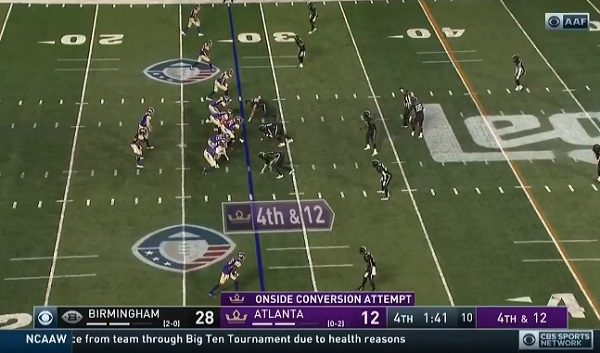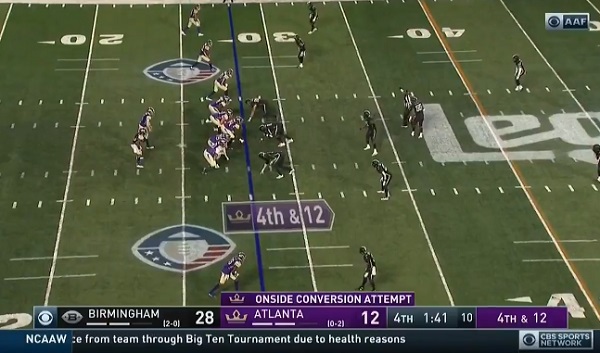
The AAF unexpectedly shut down towards the end of its inaugural season back in April for unclear reasons. Now we have an idea of what factored into majority owner Tom Dundon’s decision to close up shop after eight games.
SI’s Conor Orr has a detailed autopsy on the demise of the Alliance of American Football, the fledgling league that folded last month before getting to the end of its first season. (But not before Steve Spurrier claimed a title.) It’s a must-read if you want to know what went wrong with the league, and it contains several nuggets of previously unknown information.
For one, an explanation for why the league needed Dundon to come in and provide an influx of cash right away came to light. Reggie Fowler, the league’s primary investor, had withdrawals from his various banks held up starting in late December. The reason? He was arrested and charged for bank fraud on April 30th. Fowler now faces up to 70 years in prison.
While the reporting at the time the league was shut down portrayed Dundon as someone who bought the league to simply acquire valuable gambling technology, Orr’s story casts doubt on that interpretation. One source who was working on that technology was quoted as saying Dundon “couldn’t give a s— about the tech.”
The reason he decided to cut bait might have had to do with being able to start to recoup his investment based on television revenue. This had not been reported before, but according to Orr, the league had to pay for broadcast time and was not getting any rights fees in the first year.
From Orr’s article:
“According to a high-level sports exec from one of the four major networks, Dundon called to ask about the Alliance’s TV future. What he learned: While it wouldn’t necessarily always be this way, the AAF would have to continue paying to be on the air for the foreseeable future. The Alliance would remain an underdog fighting for TV time in a crowded sports marketplace.”
Shortly after that, Dundon was saying that the league would not survive without cooperation with the NFL and NFLPA, and then the league was closed permanently, leaving lots of players and others in bad situations. That included stories that players were kicked out of their hotels or left to pay medical bills. The league has since filed for bankruptcy and is claiming it has no funds to pay creditors.
Orr’s piece is a fascinating read on everything that went wrong, and a cautionary tale for just how hard it is to start up a business that is being pulled from a lot of different directions.














